第12章 CHAPTER 1(12)
Neither does it avail anything to say that the nature of the two sexesadapts them to their present functions and position, and renders these appropriateto them. Standing on the ground of common sense and the constitution of thehuman mind, I deny that anyone knows, or can know, the nature of the twosexes, as long as they have only been seen in their present relation to oneanother. If men had ever been found in society without women, or women withoutmen, or if there had been a society of men and women in which the women werenot under the control of the men, something might have been positively knownabout the mental and moral differences which may be inherent in the natureof each. What is now called the nature of women is an eminently artificialthing -- the result of forced repression in some directions, unnatural stimulationin others. It may be asserted without scruple, that no other class of dependentshave had their character so entirely distorted from its natural proportionsby their relation with their masters; for, if conquered and slave races havebeen, in some respects, more forcibly repressed, whatever in them has notbeen crushed down by an iron heel has generally been let alone, and if leftwith any liberty of development, it has developed itself according to itsown laws; but in the case of women, a hot-house and stove cultivation hasalways been carried on of some of the capabilities of their nature, for thebenefit and pleasure of their masters Then, because certain products of thegeneral vital force sprout luxuriantly and reach a great development in thisheated atmosphere and under this active nurture and watering, while othershoots from the same root, which are left outside in the wintry air, withice purposely heaped all round them, have a stunted growth, and some areburnt off with fire and disappear; men, with that inability to recognisetheir own work which distinguishes the unanalytic mind, indolently believethat the tree grows of itself in the way they have made it grow, and thatit would die if one half of it were not kept in a vapour bath and the otherhalf in the snow.
Of all difficulties which impede the progress of thought, and the formationof well-grounded opinions on life and social arrangements, the greatest isnow the unspeakable ignorance and inattention of mankind in respect to theinfluences which form human character. Whatever any portion of the humanspecies now are, or seem to be, such, it is supposed, they have a naturaltendency to be: even when the most elementary knowledge of the circumstancesin which they have been placed, clearly points out the causes that made themwhat they are. Because a cottier deeply in arrears to his landlord is notindustrious, there are people who think that the Irish are naturally idle.
Because constitutions can be overthrown when the authorities appointed toexecute them turn their arms against them, there are people who think theFrench incapable of free government. Because the Greeks cheated the Turks,and the Turks only plundered the Greeks, there are persons who think thatthe Turks are naturally more sincere: and because women, as is often said,care nothing about politics except their personalities, it is supposed thatthe general good is naturally less interesting to women than to men. History,which is now so much better understood than formerly, teaches another lesson: if only by showing the extraordinary susceptibility of human nature to externalinfluences, and the extreme variableness of those of its manifestations whichare supposed to be most universal and uniform. But in history, as in travelling,men usually see only what they already had in their own minds; and few learnmuch from history, who do not bring much with them to its study.
Hence, in regard to that most difficult question, what are the naturaldifferences between the two sexes -- a subject on which it is impossiblein the present state of society to obtain complete and correct knowledge-- while almost everybody dogmatises upon it, almost all neglect and makelight of the only means by which any partial insight can be obtained intoit. This is, an analytic study of the most important department of psychology,the laws of the influence of circumstances on character. For, however greatand apparently ineradicable the moral and intellectual differences betweenmen and women might be, the evidence of there being natural differences couldonly be negative. Those only could be inferred to be natural which couldnot possibly be artificial -- the residuum, after deducting every characteristicof either sex which can admit of being explained from education or externalcircumstances. The profoundest knowledge of the laws of the formation ofcharacter is indispensable to entitle anyone to affirm even that there isany difference, much more what the difference is, between the two sexes consideredas moral and rational beings; and since no one, as yet, has that knowledge(for there is hardly any subject which, in proportion to its importance,has been so little studied), no one is thus far entitled to any positiveopinion on the subject. Conjectures are all that can at present be made;conjectures more or less probable, according as more or less authorised bysuch knowledge as we yet have of the laws of psychology, as applied to theformation of character.
Even the preliminary knowledge, what the differences between the sexesnow are, apart from all question as to how they are made what they are, isstill in the crudest and most' incomplete state. Medical practitioners andphysiologists have ascertained, to some extent, the differences in bodilyconstitution; and this is an important element to the psychologist: but hardlyany medical practitioner is a psychologist. Respecting the mental characteristicsof women; their observations are of no more worth than those of common men.